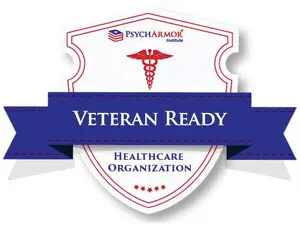Addiction Treatment Providers Testify Before Congress
Tuesday morning six men whom all have ties to the addiction treatment industry sat before the House Energy and Commerce Subcommittee on Oversight and Investigations to discuss the progress and future of the Quality Assurance Initiative crafted by the National Association of Addiction Treatment Providers (NAATP). The take away from the two hours of testimony can be summarized in one statement uttered by the President of the Hazelden Betty Ford Foundation “the size of an advertising budget, web analytics, search engine optimization, and call center tactics should not determine the success of a program.”
Congresswoman Diana DeGette, a representative from Colorado began her opening statements educating the witnesses on the fact 61% of people searching for addiction treatment services do so online. The preferred way for those in need to find treatment would be to utilize trusted websites such as SAMSHA.gov or by contacting community services so potential patients can be fully informed and make unbiased decisions on the best treatment for their unique circumstance. Not enough awareness has been raised about addiction treatment facility quality standards. Outside of the addiction treatment industry, very few people know to look for the NAATP stamp of approval before considering treatment.
Martin Ventrell, Executive Director of the NAATP stated during his opening summary that his organization has been “horrified” by a select few bad actors posing as exceptional treatment facilities. Those seeking treatment are in a particularly vulnerable position. Desperate for help and often low on financial and assistant resources, ambiguous advertising is all it could take to pull someone with substance use disorder into a fraudulent treatment program.
Some of the tasteless marketing practices deceitful organizations are conducting include credential misrepresentation of staff, threatening dialogue, counterfeit billing and insurance claims, patient brokering, and predatory web practices. Additionally, companies such as TreatmentCalls.com, owned by Jason Brian who testified in front of the Oversight committee need stronger standards for partnerships. After Congressman Carter from Georgia dug deeper into TreatmentCall’s business practices, he found the only requirement for Mr. Brian to accept a business agreement with a company was to have a license. No consideration is given towards the quality of treatment, accreditation, and program specialties. Congressman Carter pressured the call center affiliate to begin analyzing a perspective partner’s outcomes before signing a deal. “We cannot prioritize financial gain over saving lives.”
In the beginning of the hearing, Congresswoman DeGette announced she was eager to hear the qualities the NAATP has deemed as red and green flags when researching a prospective treatment facility. Mr. Ventrell listed an extensive staff page, cell center representatives answering from the intended facility, a long and impressive track record of service, an available aftercare program, and numerous levels of care options are components of a reliable treatment facility. Warning signs of a faulty facility consist of a generic website and redirected calls. It is important to know who is answering the phone. Callers should not be misled or have to actively search the fine print to identify whom they are speaking with.
It is important to note that referrals are not inherently an erroneous act. Referrals are largely placed by trusted healthcare or addiction specialists with only the patient’s best interest in mind. When referrals are conducted in an unethical manner motivated by kickbacks is when they are misused. Dr. Kenneth Stoller, Director at John Hopkins Hospital Broadway Center for Addiction proudly only accepts referrals from organizations with previous exposure and knowledge of potential clients such as personal care physicians.
In conclusion, “we cannot lose sight of the good work being done” one man testified. Congressman Brooks from Indiana suggested increasing the number of students graduating from med school with concentrations in addiction studies, or degrees in psychology would have a beneficial impact on the issue of the opioid crisis. Finally, many who testified pleaded for universal regulations. So many legal requirements vary from state to state offering no consistency in quality of care or responsibility. Recognized addiction treatment facilities do not have to fight dirty for healthy census reports. If a business operates efficiently and ethically, people will naturally apply. The opioid epidemic is raging throughout the United States, there is no shortage of prospective patients, but an enormous lacking of quality treatment facilities to treat them.
Seabrook is a nonprofit, internationally recognized, private CARF-accredited behavioral healthcare organization. Seabrook has proudly been serving those with substance abuse, co-occurring disorders, and their families for over 44 years. Seabrook is a proud member of the National Association of Addiction Treatment Providers (NAATP) and has supported its efforts to increase the ethical and quality practices performed in addiction treatment facilities across the nation. Seabrook was recently approved as one of the first addiction treatment facilities to be approved by LegitScript to reinstate advertising on Google after the industry freeze. For more information on the new guidelines and procedures for addiction treatment providers regarding online advertising please visit, www.NAATP.org.



